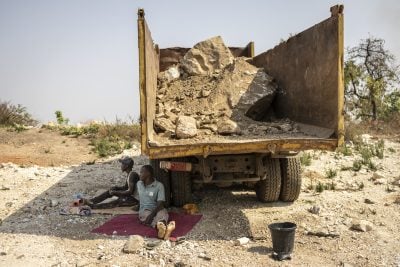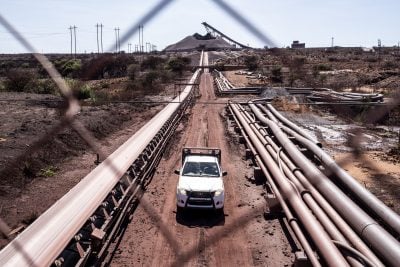The inaugural Africa Climate Summit held in the Kenyan capital, Nairobi, concluded with a bold “African Leaders’ Nairobi Declaration on Climate Change and Call to Action” document that proposes a “global taxation regime including a carbon tax on fossil fuels, maritime transport and aviation, to provide affordable and accessible finance for climate-positive investments at scale.”
Kenya’s President William Ruto welcomed more than 30,000 delegates to Nairobi. This included over a dozen African heads of state, the US climate envoy John Kerry, EU chief Ursula von der Leyen and UN secretary-general António Guterres. They helped shape what is to become Africa’s climate agenda for the next two years.
The declaration, which repeated the call for the industrialised nations to honour their $100bn climate finance pledge made 14 years ago, also proposed the redesign of the multilateral development banks to ensure they respond to the needs of the Global South.
Endorsed by the African Union leaders, the document will now serve “as a basis for Africa’s common position in the global climate change process [up] to the 28th session of the Conference of Parties to the UN Framework Convention on Climate Change (COP28) in Dubai in November this year and beyond”.
The Pan African Climate Justice Alliance (PACJA), which had earlier criticised the summit organisers, welcomed the Nairobi Declaration.
“In essence, the passing of the African Leaders’ Declaration on Climate Action is a significant step in the fight against climate change in Africa. It represents a unified front among African nations to address climate challenges and work toward a more sustainable and resilient future for the continent,” said Mithika Mwenda, who heads PACJA.
Also contained in the Nairobi Declaration is the call for the speedy operationalisation of the Loss and Damage financing facility as well as the establishment of the climate summit as a biennial continental event.
Related articles
- Africa Climate Summit concludes with demand for investment in green energy
- Kenya’s Green Hydrogen Strategy launches at Africa Climate Summit
- ‘Africa holds key to decarbonising global economy’ says Ruto at launch of Africa Climate Summit
Civil society voice heard
“Broadly speaking, we are proud that we were able to influence the outcomes of the summit,” said Mwenda. “Initially, we feared that the summit was going to prioritise carbon markets, which we consider are false solutions, that it was going to be hijacked by foreign corporate interests and that it was going to reduce the active participation of African civil societies and people.
“We pushed against this strongly and we are glad that carbon markets did not become the main agenda item, that African civil societies participated and that their voices were heard. Of course, the summit could have delivered more.”
The declaration further calls for the acceleration of green growth pathways through the increase of Africa’s renewables generation from the current 56 GW to at least 300 GW by 2030, to bridge the energy gap and alleviate the suffering of the estimated 600m people lacking electricity on the continent.
Green growth is defined as an economic model that embraces low or less polluting pathways such as renewable energies for development. According to Hanan Morsy, deputy executive secretary and chief economist at the UN Economic Commission for Africa, “the continent’s energy transition cannot be identical to the rest of the world and requires pragmatic solutions”.
Other proposals in the declaration include the development of a new Global Climate Finance Charter through the UN General Assembly and COP processes by 2025.
But while they expressed their satisfaction with the declaration, the civil society groups noted that it was soft on adaptation.
“It is a bit disappointing that despite the evidence, adaptation and adaptation finance are not at the core of the declaration. As far as we are concerned, adaptation remains the priority for Africa because for us, it’s a matter of life and death,” said Mwenda.
“We need bold and decisive political commitments to translate all the decisions in this summit into tangible actions that benefit our respective communities,” said Benjamin Karmorh Jnr of Liberia’s Environmental Protection Agency.
According to James Kinyangi of the African Development Bank, the continent possesses the greatest potential for green investments, infrastructure, and technology but is still underperforming when it comes to leveraging opportunities that abound in green trade, and the Africa Climate Summit offered a suitable platform to address the multi-faceted challenges.
Estimates by the African Development Bank indicate that Africa loses $7-$15bn per year due to climate change and this is estimated to rise to $50bn by 2040 if the current trends persist. The Nairobi climate summit could well be the first major step in changing the narrative.
Want to continue reading? Subscribe today.
You've read all your free articles for this month! Subscribe now to enjoy full access to our content.
Digital Monthly
£8.00 / month
Receive full unlimited access to our articles, opinions, podcasts and more.
Digital Yearly
£70.00 / year
Our best value offer - save £26 and gain access to all of our digital content for an entire year!

 Sign in with Google
Sign in with Google 



